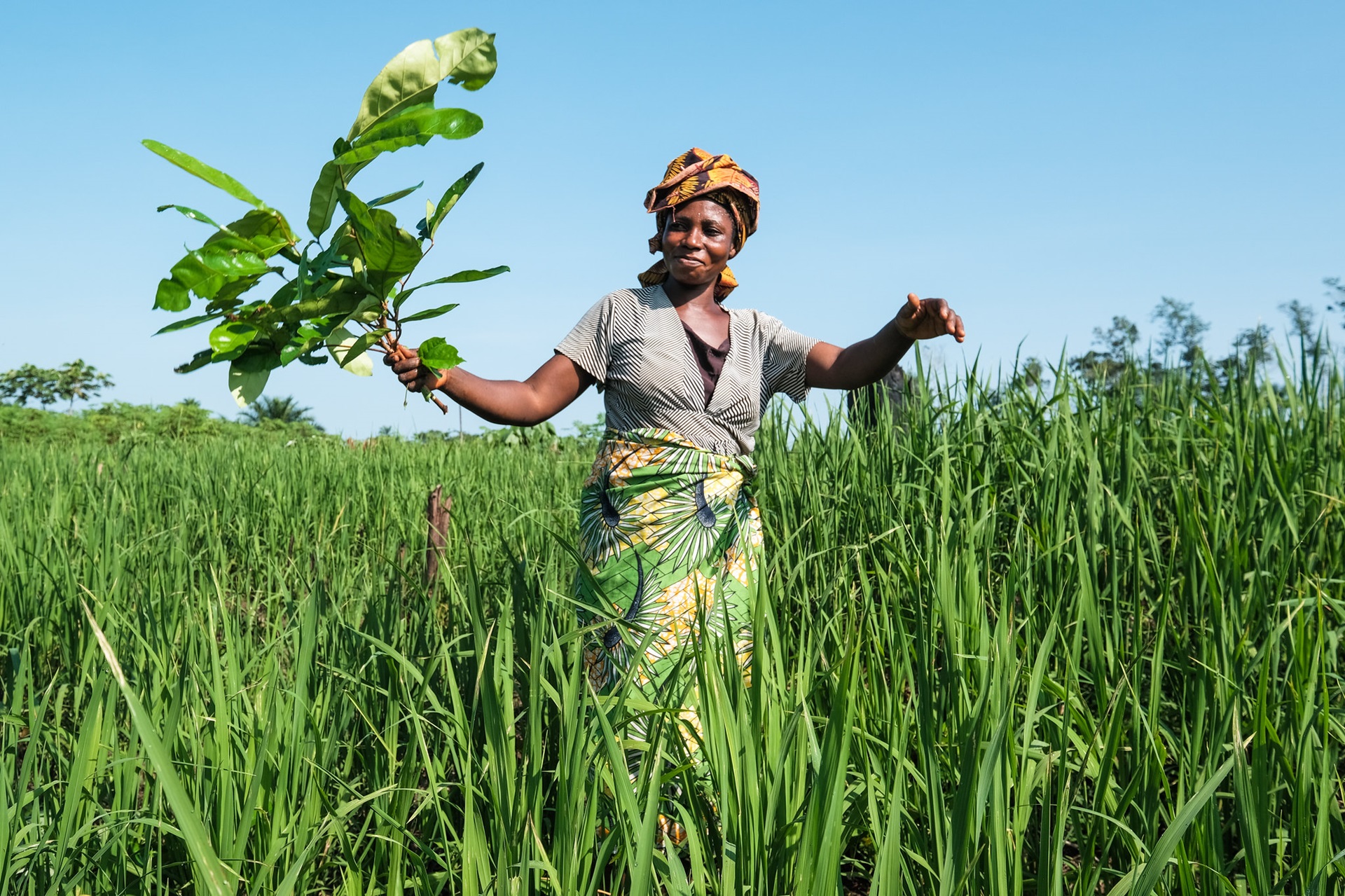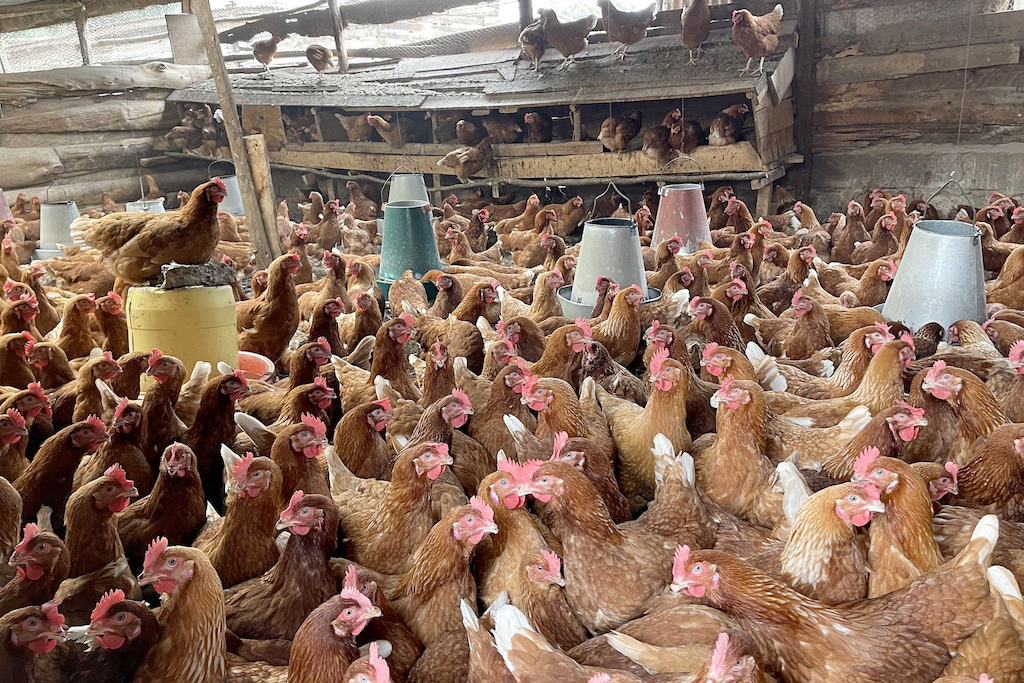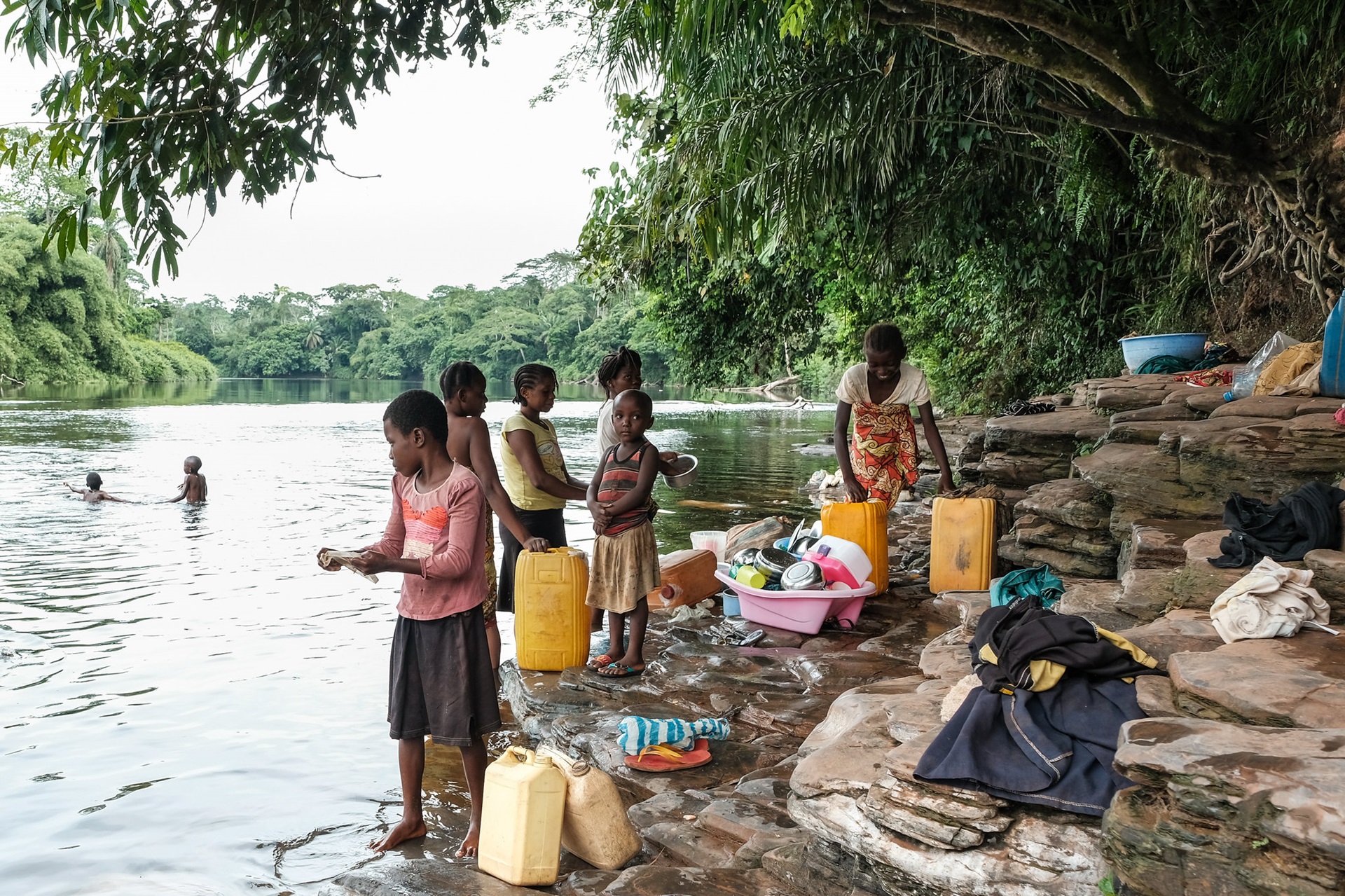
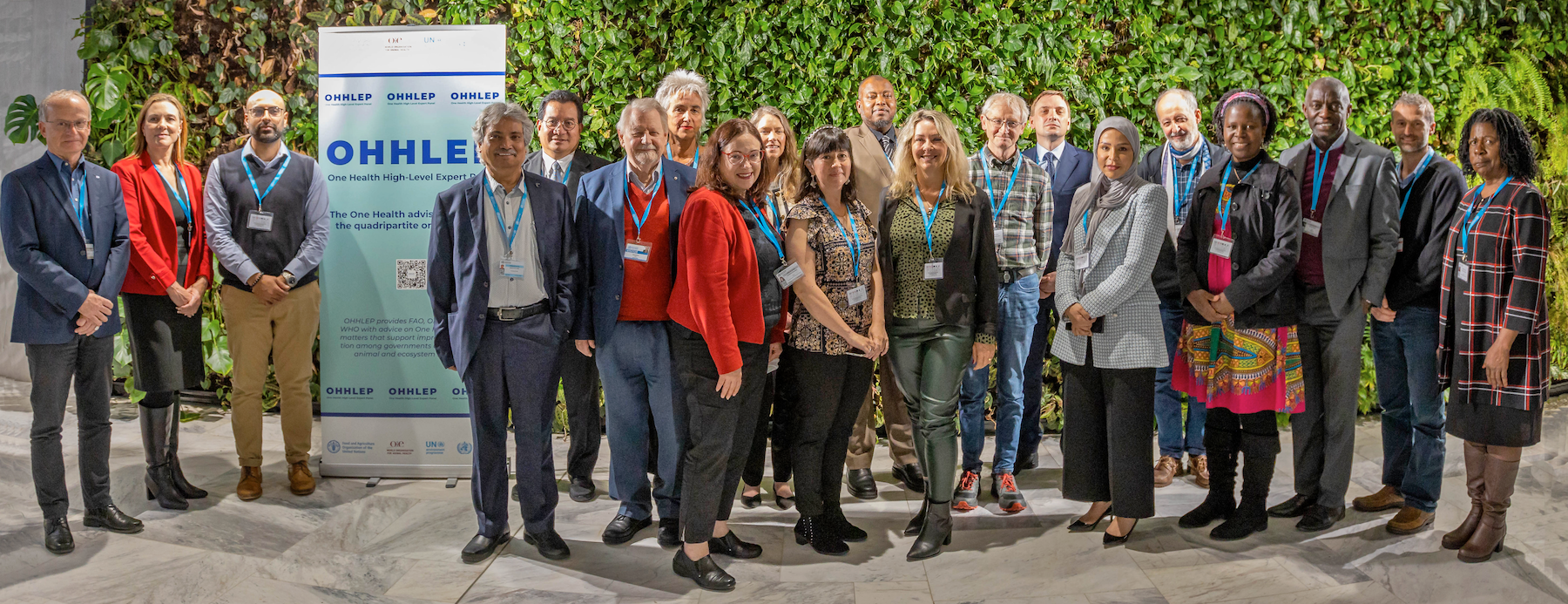
OHHLEP members
The heads of FAO, UNEP, WHO and WOAH met in November 2020 at the Paris Peace Forum, to further enhance their cross-sectoral collaboration by creating a multidisciplinary One Health High-Level Expert Panel (OHHLEP) with the support of the governments of France and Germany.
May 2021, the One Health High-Level Expert Panel (OHHLEP) was launched with 26 selected key international experts.
OHHLEP will initially focus on providing:
- policy relevant scientific assessment on the emergence of health crises arising from the human-animal-ecosystem interface; and
- guidance on the development of a long-term strategic approach to reducing the risk of zoonotic pandemics, with an associated monitoring and early warning framework, and synergies needed to institutionalize and implement the One Health approach, including in areas that drive pandemic risk.
The OHHLEP has an advisory role to the Partners and is expected to provide advice to the Partners to support their provision of evidence-based scientific and policy advice to address the challenges raised by One Health.
The OHHLEP’s advice will contribute to enhancing strategic orientations and coordination, and to providing high political visibility on the subject of One Health. It will be based on the analysis of scientific evidence on the links between human, animal and ecosystem health, and contribute to foresight on emerging threats to health. It will improve a common and better understanding of the impacts of food systems (including agriculture, livestock farming and trade, wildlife hunting and trade, aquaculture, animal products processing, handling, distribution and consumer practices) as well as ecological and environmental factors that may be contributing to zoonotic disease emergence/re-emergence and spillover events.
Further details about panel composition, Terms of Reference, Meetings and Thematic groups can be accessed through the related links.
Publications

One Health definitions and principles
This document provides definition and key principles of One Health in several languages
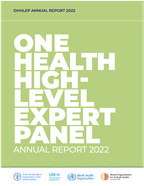
This second annual report summarizes the activities and results achieved by the One Health High-Level Expert Panel (OHHLEP) during the year 2022, according...

Prevention of zoonotic spillover
The devastating impact of COVID-19 on human health globally has prompted extensive discussions on how to better prepare for and safeguard against the next...
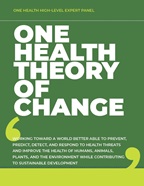
One Health theory of change
To help achieve these aims in a comprehensive, systematic and sustainable way in keeping with the underlying principles of the One Health approach, OHHLEP...
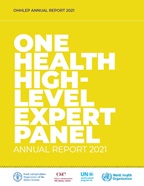
One Health High-Level Expert Panel Annual Report 2021
This report summarizes the activities and results achieved in 2021 by the 26 experts One Health High-Level Expert Panel (OHHLEP), according to the work...
Peer-reviewed articles

